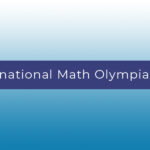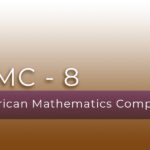India National Olympiad 1999 Problems
Problem 1
Let $ABC$ be an acute-angled triangle in which $D,E,F$ are points on $BC,CA,AB$ respectively such that $AD \perp BC$;$AE = BC$; and $CF$ bisects $\angle C$ internally, Suppose $CF$ meets $AD$ and $DE$ in $M$ and $N$ respectively. If $FM$$= 2$, $MN =1$, $NC=3$, find the perimeter of $\Delta ABC$.
Problem 2
In a village $1998$ persons volunteered to clean up, for a fair, a rectangular field with integer sides and perimeter equla to $3996$ feet. For this purpose, the field was divided into $1998$ equal parts. If each part had an integer area, find the length and breadth of the field.
Problem 3
Show that there do not exist polynomials $p(x)$ and $q(x)$ each having integer coefficients and of degree greater than or equal to 1 such that\[ p(x)q(x) = x^5 +2x +1 . \]
Problem 4
Let $\Gamma$ and $\Gamma’$ be two concentric circles. Let $ABC$ and $A’B’C’$ be any two equilateral triangles inscribed in $\Gamma$ and $\Gamma’$ respectively. If $P$ and $P’$ are any two points on $\Gamma$ and $\Gamma’$ respectively, show that\[ P’A^2 + P’B^2 + P’C^2 = A’P^2 + B’P^2 + C’P^2. \]
Problem 5
Given any four distinct positive real numbers, show that one can choose three numbers $A,B,C$ from among them, such that all three quadratic equations\begin{eqnarray*} Bx^2 + x + C &=& 0\\ Cx^2 + x + A &=& 0 \\ Ax^2 + x +B &=& 0 \end{eqnarray*}have only real roots, or all three equations have only imaginary roots.
Problem 6
For which positive integer values of $n$ can the set $\{ 1, 2, 3, \ldots, 4n \}$ be split into $n$ disjoint $4$-element subsets $\{ a,b,c,d \}$ such that in each of these sets $a = \dfrac{b +c +d} {3}$.




